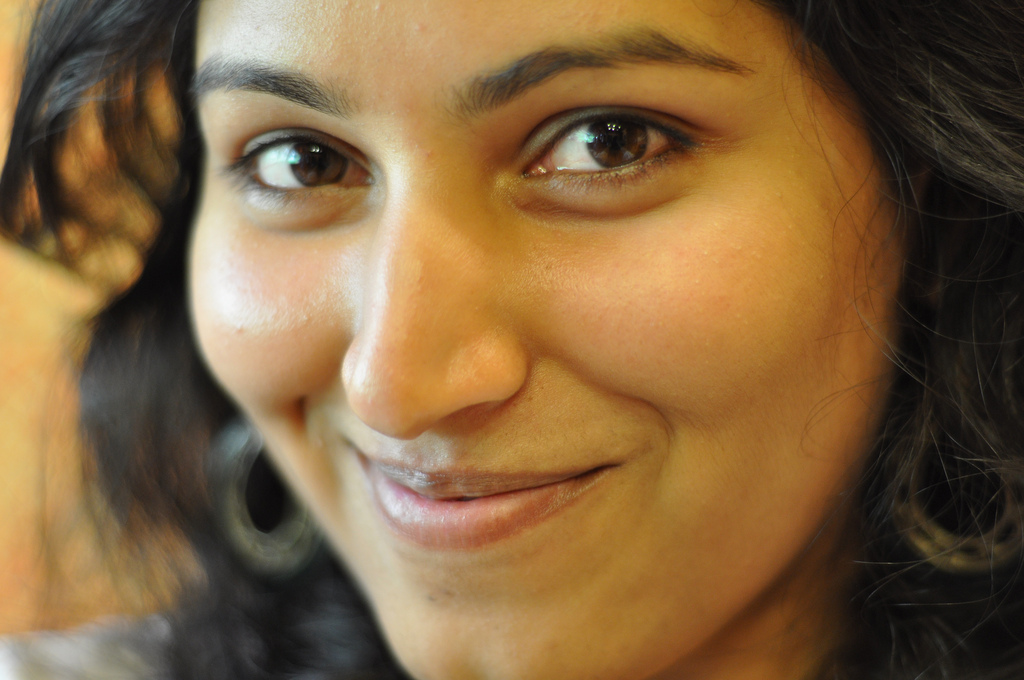Windows to the soul. Shreyans Bhansali via flikr, CC BY-NC-SA 2.0
The headlines
BBC: Truth or lie – trust your instinct, says research
British Psychological Society: Our subconscious mind may detect liars
Daily Mail: Why you SHOULD go with your gut: Instinct is better at detecting lies than our conscious mind
The story
Researchers at the University of California, Berkeley, have shown that we have the ability to unconsciously detect lies, even when we’re not able to explicitly say who is lying and who is telling the truth.
What they actually did
The team, led by Leanne ten Brinke of the Haas School of Business, created a set of videos using a “mock high-stakes crime scenario”. This involved asking 12 volunteers to be filmed while being interrogated about whether they had taken US$100 dollars from the testing room. Half the volunteers had been asked to take the $100, and had been told they could keep it if they persuaded the experimenter that they hadn’t. In this way the researchers generated videos of both sincere denials and people who were trying hard to deceive.
They then showed these videos to experimental participants who had to judge if the people in the videos were lying or telling the truth. As well as this measure of conscious lie detection, the participants also completed a task designed to measure their automatic feelings towards the people in the videos.
In experiment one this was a so-called Implicit Association Test which works by comparing the ease with which the participants associated the faces of the people in the videos with the words TRUTH or LIE. Experiment two was a priming test, where the faces of the people in the videos changed the speed at which people then made judgements about words they were then given related to truth-telling and deception.
The results of the study showed that people were no better than chance in their explicit judgements of who was telling the truth and who was lying, but the measurements of their other behaviours showed significant differences. Specifically, for people who were actually lying, observers were slower to associate their faces with the word TRUTH or quicker to associate it with the word LIE. The second experiment showed that after seeing someone who was actually telling the truth people made faster judgements about words related to truth-telling and slower judgements about words related to deception (and vice versa after a video of someone who was actually lying).
How plausible is this?
The result that people aren’t good at detecting lies is very well established. Even professionals, such as police officers, perform poorly when formally tested on their ability to discriminate lying from truth telling.
It’s also very plausible that the way in which you measure someone’s judgement can reveal different things. For example, people are in general notoriously bad at reasoning about risk when they are asked to give estimates verbally, but measurements of behaviour show that we are able to make very accurate estimates of risk in the right circumstances.
It fits with other results in psychological research which show that over thinking certain judgements can reduce their accuracy
Tom’s take
The researchers are trying to have it both ways. The surprise of the result rests on the fact that people don’t score well when asked to make a simple truth vs lie judgement, but their behavioural measures suggest people would be able to make this judgement if asked differently. Claiming the unconscious mind knows what the conscious mind doesn’t is going too far – it could be that the simple truth vs lie judgement isn’t sensitive enough, or is subject to some bias (participants afraid of being wrong for example).
Alternatively, it could be that the researchers’ measures of the unconscious are only sensitive to one aspect of the unconscious – and it happens to be an aspect that can distinguish lies from an honest report. How much can we infer from the unconscious mind as a whole from the behavioural measures?
When reports of this study say “trust your instincts” they ignore the fact that the participants in this study did have the opportunity to trust their instincts – they made a judgement of whether individuals were lying or not, presumably following the combination of all the instincts they had, including those that produced the unconscious measures the researchers tested. Despite this, they couldn’t guess correctly if someone was lying or not.
If the unconscious is anything it will be made up of all the automatic processes that run under the surface of our conscious minds. For any particular judgement – in this case detecting truth telling – some process may be accurate at above chance levels, but that doesn’t mean the unconscious mind as a whole knows who is lying or not.
It doesn’t even mean there is such as thing as the unconscious mind, just that there are aspects to what we think that aren’t reported by people if you ask them directly. We can’t say that people “knew” who was lying, when the evidence shows that they didn’t or couldn’t use this information to make correct judgements.
Read more
The original paper: Some evidence for unconscious lie detection"
The data and stimuli for this experiment are freely available – a wonderful example of “open science.”
![]() A short piece I wrote about how articulating your feelings can get in the way of realising them.
A short piece I wrote about how articulating your feelings can get in the way of realising them.
This article was originally published on The Conversation. Read the original article.
